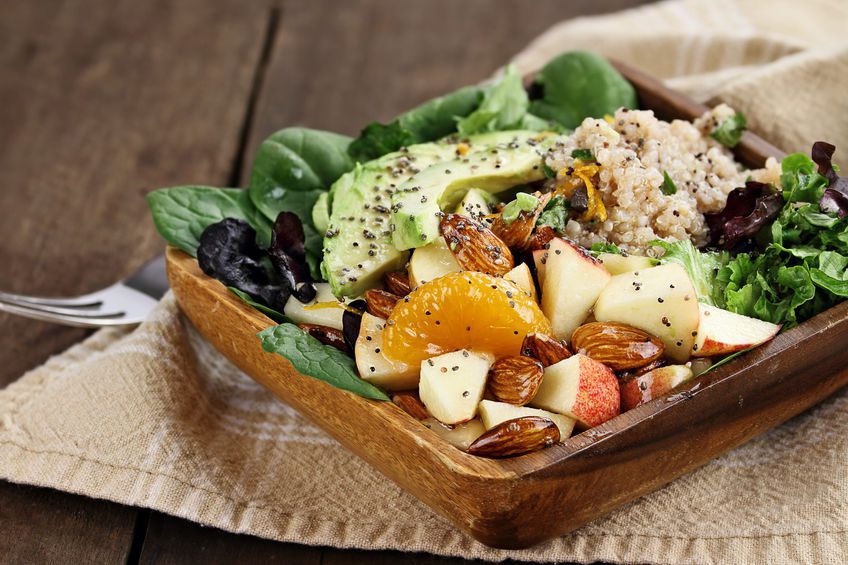How To Reduce Inflammation
One of the healthiest ways to reduce inflammation does not come from a pharmacy shelf but from your own refrigerator. By following an anti-inflammatory diet, you can naturally fight inflammation and support healing. As Dr. Frank Hu, professor of nutrition and epidemiology at the Harvard School of Public Health, explains, “Many studies show that components of foods and drinks may have anti-inflammatory effects.” At PDR Physical Therapy & Wellness Center in Mount Prospect, we believe that maintaining a healthy diet, together with regular movement, plays an essential role in treatment and helps speed up recovery.
Why inflammation isn’t always the enemy
Inflammation helps the body fight illness and protects it from harm. In many cases, it is a necessary part of the healing process. However, when the immune system stops working as it should, inflammation can become long-lasting or return repeatedly. Instead of protecting the body, it begins to damage it. As a result, major diseases such as cancer, heart disease, diabetes, arthritis, depression, and Alzheimer’s have all been linked to chronic inflammation. Choosing the wrong foods can make inflammation worse. On the other hand, eating meals rich in anti-inflammatory ingredients is one of the best ways to reduce inflammation and lower your long-term health risks.
What to eat to fight inflammation
- Vegetables — especially leafy greens (spinach, kale), crucifers (cauliflower, broccoli, Brussels sprouts, cabbage), carrots, beets, onions, beans, and seaweed.
- Fruits — the darker the color, the higher the antioxidants. Aim for variety to maximize anti-inflammatory benefits.
- Grains — wild, brown, and basmati rice; buckwheat; barley groats; and quinoa provide steady energy and help prevent blood-sugar spikes that promote inflammation.
- Pasta — choose whole-grain, rice, or bean-based pasta. Cook it al dente to keep the glycemic index lower.
- Legumes — beans, peas, lentils, and chickpeas provide folate, magnesium, potassium, and soluble fiber to support detoxification.
- Healthy fats — extra-virgin olive oil, cold-pressed canola oil, walnuts, hazelnuts, hemp seeds, flax, chia seeds, and avocado supply anti-inflammatory omega-3s.
- Fish & seafood — salmon, herring, sardines, tuna, and mackerel are rich in omega-3 fatty acids that reduce inflammation.
- Soy foods — tofu, tempeh, soy milk, and fermented soy dishes add antioxidant isoflavones that protect tissues.
- Mushrooms — truffles, portobello, shiitake, enoki, and maitake contain natural compounds that help control inflammation.
- Proteins — choose lean dairy, omega-3 fortified eggs, skinless poultry, and other low-fat options to meet your protein needs.
- Tea — green, white, and oolong teas provide antioxidants that calm inflammation and support the immune system.
- Healthy sweets (occasionally) — enjoy small portions of unsweetened dried fruit, fruit sorbet, or dark chocolate (70% cocoa or higher).
What to limit or avoid
- Junk foods and refined snacks such as pretzels, crackers, and flour tortillas
- Refined carbohydrates like white bread, standard pasta, white rice, and biscuits
- Fried foods and fast food meals
- Sugar-sweetened beverages and soft drinks
- Processed meats such as bacon, jerky, canned meats, salami, hot dogs, and smoked meats
- Trans fats found in shortening, hydrogenated oils, and some margarines
How physical therapy fits into your plan
Healthy eating works even better when combined with movement. A personalized physical therapy program helps improve circulation, flexibility, and stress control—all of which support lower inflammation. At PDR, our clinicians use gentle manual techniques, movement training, and patient education to help you build strong, sustainable habits that support long-term healing.
Ready to calm inflammation and feel better?
Schedule an evaluation at PDR Physical Therapy & Wellness Center in Mount Prospect. We’ll design a personalized plan that combines nutrition guidance, exercise goals, and physical therapy to help you recover faster and feel your best.



















